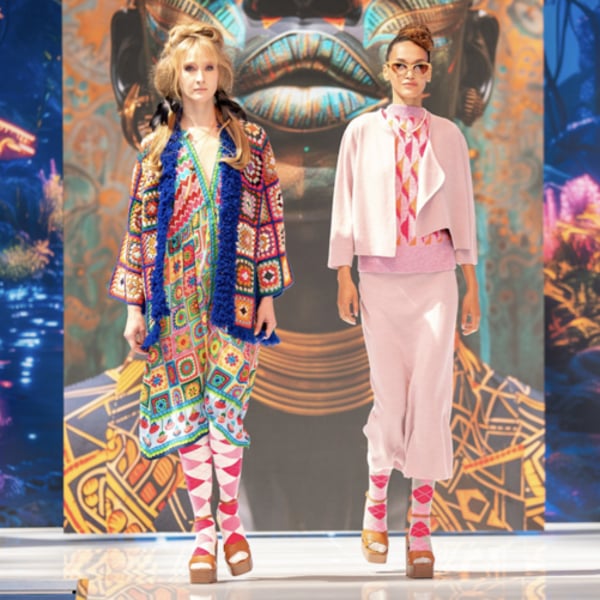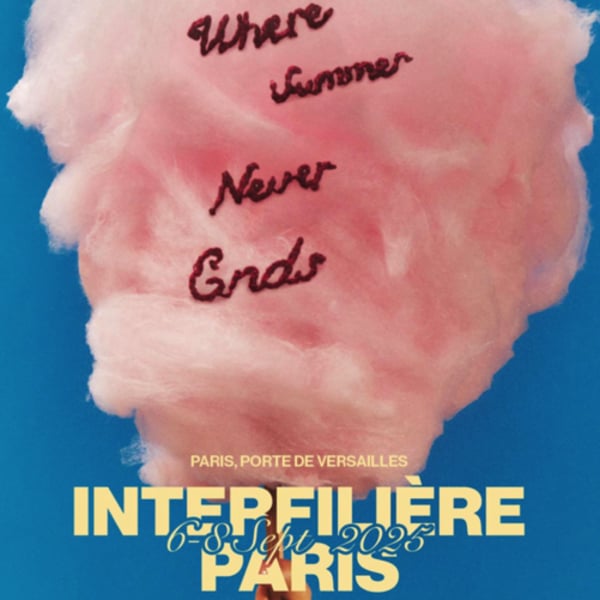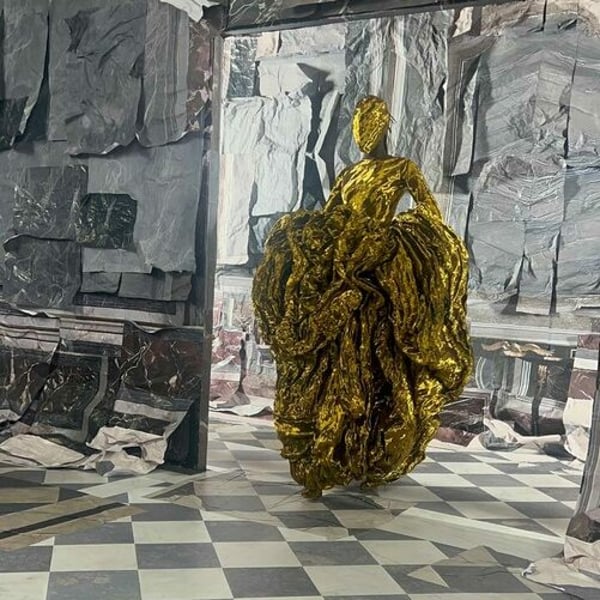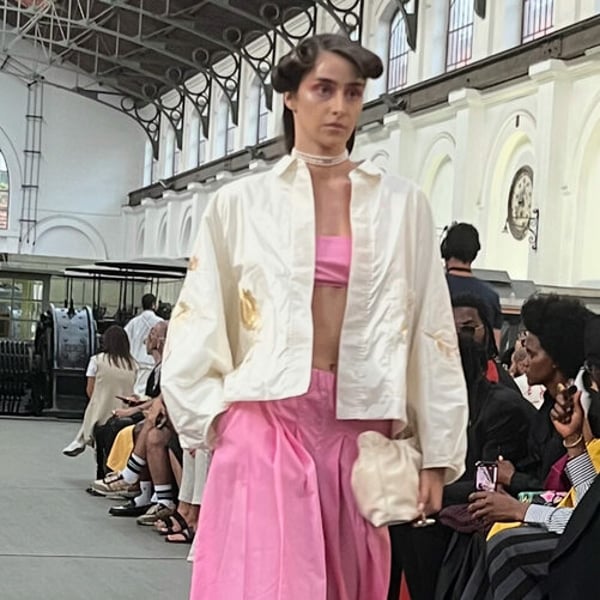In only its second edition as a midweek show, Source Fashion said it saw “unprecedented opening day attendance” on Tuesday.
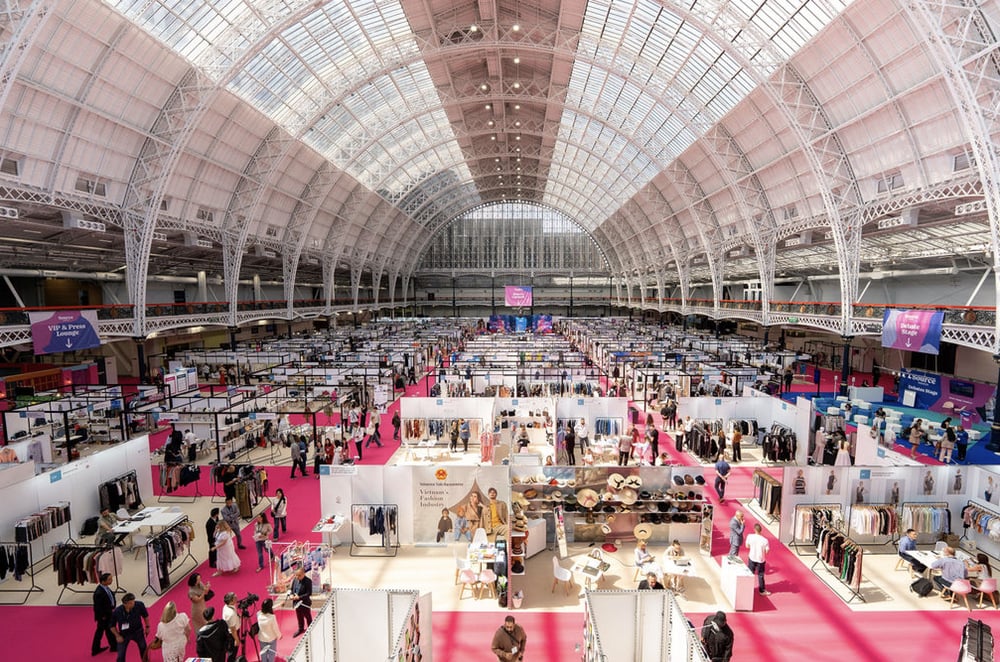
The record-breaking start at London’s Olympia included a number of big names and prominent independent businesses such as John Lewis, M&S, All Saints, Next, Temperley London, River Island, Joules, Lucy & Yak, Bad Monday, Jaded London and Gigi & Olive.
The event features 250 “responsible” manufacturers from 22+ key sourcing regions (including the UK itself as well as, Portugal, Morocco, India, Nepal, Italy, Hong Kong, Nigeria, Türkiye, France, and China).
And those more used to visiting Pure London in July (now part of Spring fair and Autumn Fair in Birmingham) and seeing its popular catwalk shows were still able to see such shows with Source’s runway drawing large crowds.
It showcased three key trends being seen at the event: Electric Nature, Retro Richness, and Creative Joy. And headline partner Reskinned presented an edit of pre-owned pieces that supported the importance of resale and reuse to any sourcing operation.
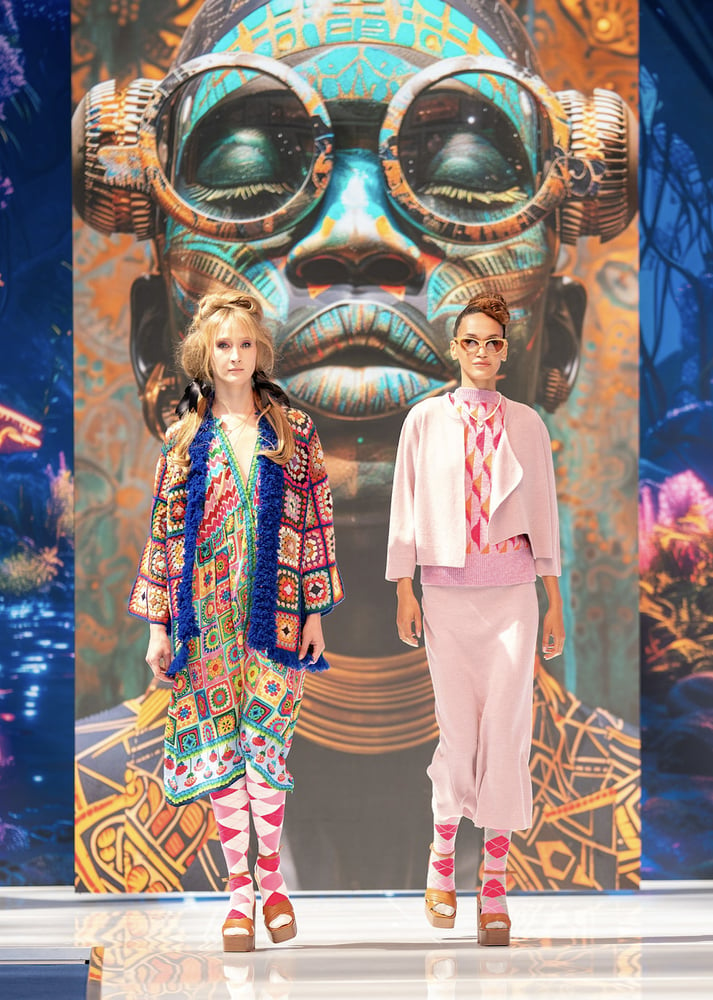
The Source Debates stages also proved to be a big draw with subjects ranging from whether consumers really will pay more for sustainable fashion, what it will take to make that happen and whether the “sustainable shopper” even exists.
Rachel Gray of WRAP said that “people love to make the right decisions, but life gets in the way. If we want to see real change, we need to match good information with real-life convenience”.
And Jane Blacklock, head of environmental, social and governance (ESG) for outdoor clothing label Passenger talked about the need to build clothing with a second life in mind so you can “buy it once, wear it all the time, love it, and then repair it”.
In a similar vein, one session “explored how fashion can challenge the volume-equals-profit mindset and make a compelling case for post-growth business models”.
“If you build brand loyalty first and treat your brand like it has a purpose, it’s a lot easier to sell,” said Charlie Jones of Phase London. And Nick Reed of Neem London added that “when a customer buys from us, they’re buying an asset. We take it back at end of life, any brand, any condition, and that creates a more valuable, circular relationship”.
The general message was that “collaboration, transparency, and bold thinking are key to reshaping growth in fashion, not just economically, but environmentally and ethically”.
Of course, some might be inclined to think that this is all very well for smaller, ethically-founded brands with more niche customers. But Linda Peddie, COO and CIO of New Look, showed that the issue is a live one at major mass-market brands too. Yet she also highlighted the challenges.
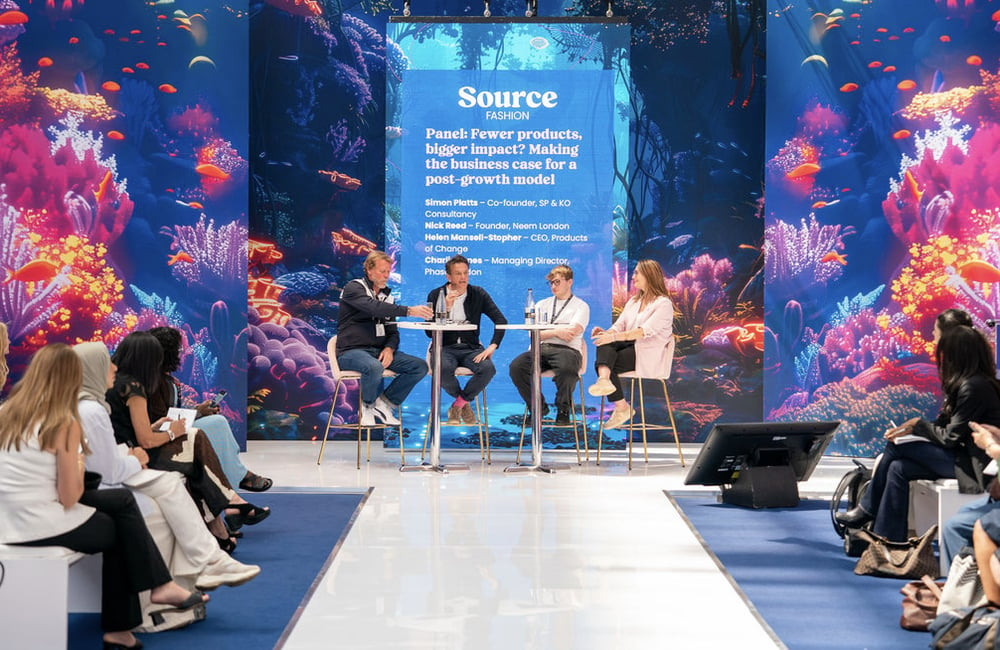
“The reality is, you have to make the whole system work,” she said, stressing the need for aligned legislation, better data, and industry-wide collaboration.
Meanwhile, “sustainability veteran” Simon Platts, founder of SP&KO Consultancy, drew on decades of experience at brands including ASOS, and argued that “overconsumption, not market volatility, is the real barrier to meaningful progress”. He called for a shift to “more commercially sustainable practices, underpinned by transparency, better data, and genuine supply chain engagement”.
And of course, speakers also spoke of the importance of consumer education.
In terms of visitors from abroad, while we hear a lot about barriers to trade that are happening, but we tend to hear less about markets that are opening up. Yet Aude Priya Wacziarg director at sourcing specialist Francis Wacziarg Group, said: “It’s our first time in the UK, because India and the UK have signed a treaty for trade and now, we want to come here often.” That’s likely to be a sentiment repeated across the trade show season as far as Indian buyers and supplier are concerned.
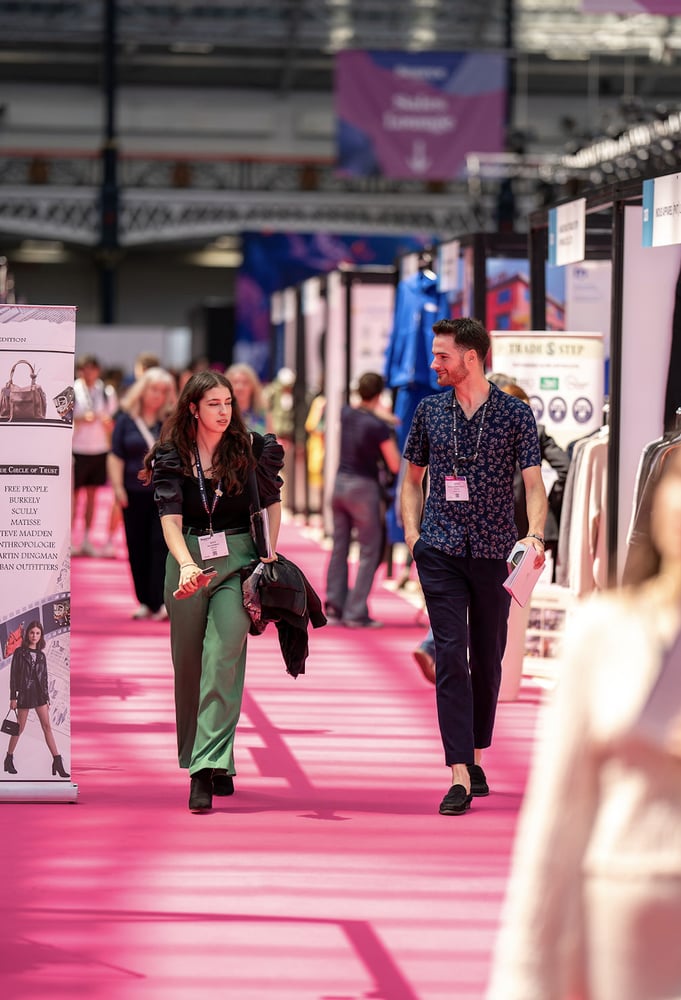
Event director Suzanne Ellingham hailed the “energy on the show floor” and also said that ‘what’s really exciting is that this isn’t just a sourcing show, it’s become a space for honest conversations, innovation, and real collaboration. The response to our content programme, on the Source Catwalk and Source Debates stage, shows just how hungry the industry is for transparency and change, and to have honest conversations about how we drive that change together.”
Copyright © 2025 FashionNetwork.com All rights reserved.
